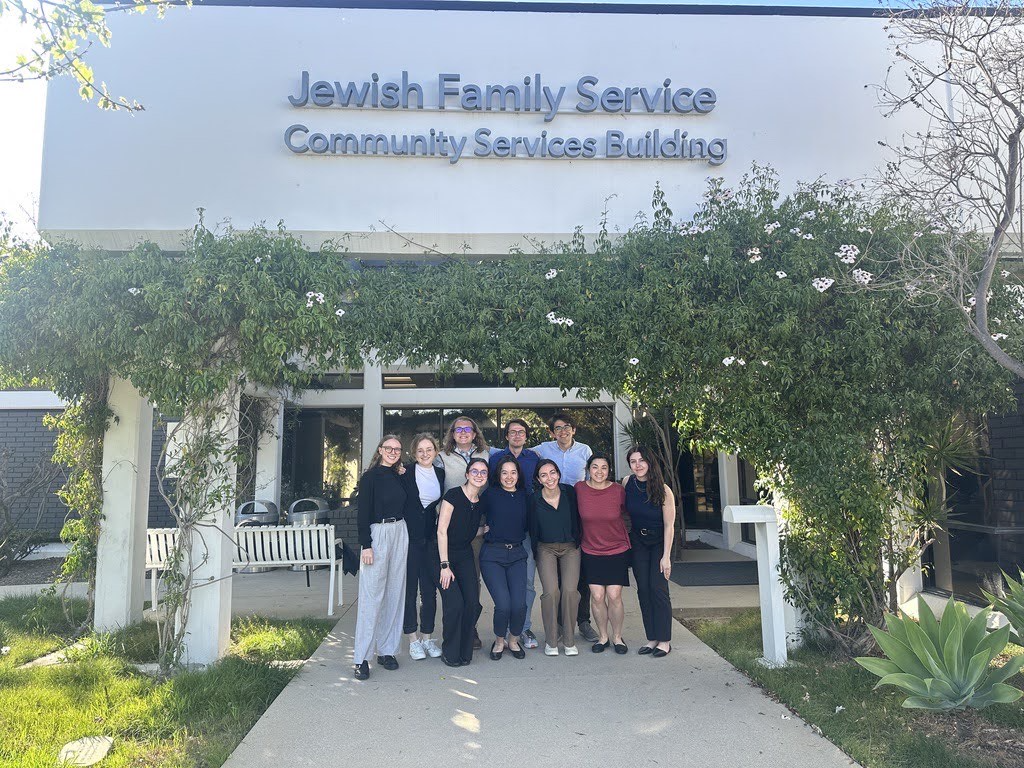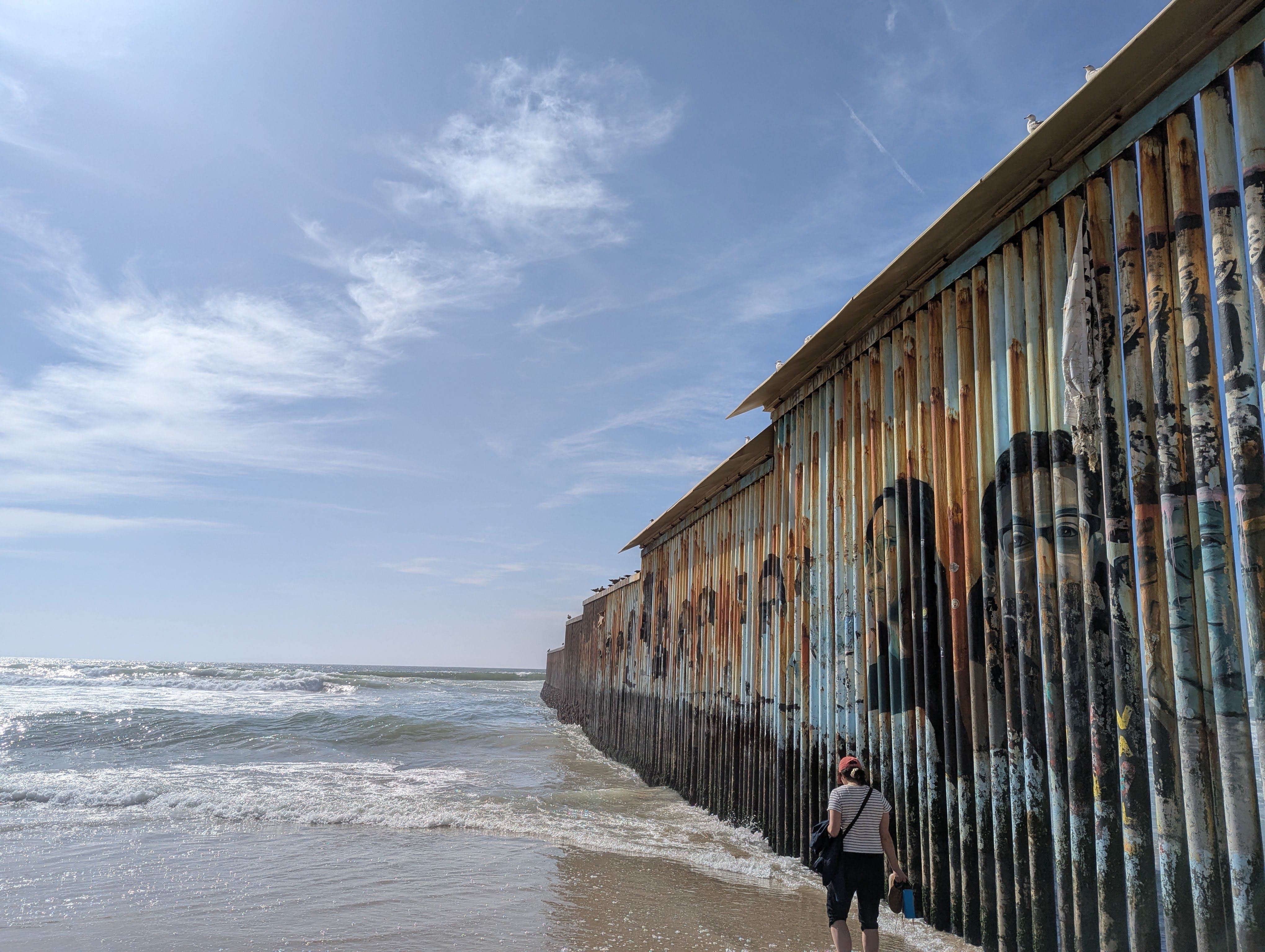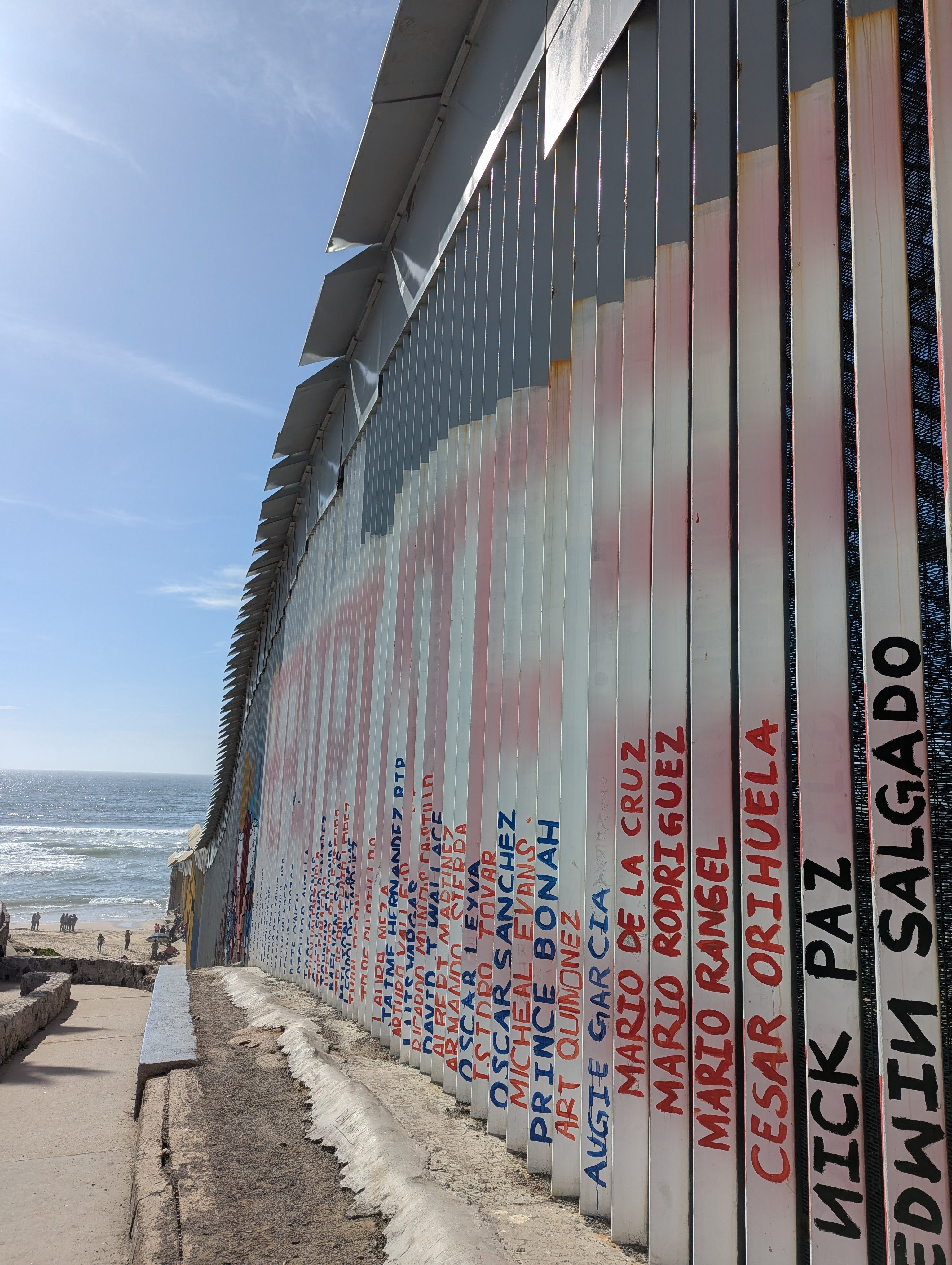By Eli Cooper ’27

Photo courtesy of Eli Cooper
As I’ve navigated the law school experience, I’ve found it important to seek out opportunities that allow me to put the skills that we are being taught into practice. Many of these opportunities, like the Harvard Law School Immigration Project (“HIP”), do outstanding work in the Boston community, giving students such experiences. However, there are fewer opportunities for law students to take a step outside of their immediate community and have a tangible impact. Motivated by these considerations and equipped with training on common immigration legal processes we might encounter, I was excited to hop on the plane to San Diego with nine other students for our spring break pro bono trip sponsored by HIP and the Office of Clinical and Pro Bono Programs.
San Diego is a quintessential example of a border community: a community indisputably shaped by the cross-border movement of people and culture. To situate ourselves and the work that we would be doing, our hosts for the week, Jewish Family Service (“JFS”), encouraged us to explore the community and experience what it meant to live in a place so intertwined with its cross-border nature. To that end, we were trained on the unique circumstances faced by San Diego and Tijuana and the challenges that JFS faced as an organization that sought to serve the entire community in the current political context. As we continued to experience San Diego and Tijuana throughout the week, we paid special attention to these considerations.


Our work responsibilities with JFS could largely be sorted into two types of services: community-facing events and legal document drafting. With two groups of five students, we were able to take part in many of the community events that JFS provided: intake consultations, citizenship classes, “DACA Day,” and “Know Your Rights” presentations. While I’m sure that each one of us would identify a different “favorite” moment, the citizenship classes universally stood out. Being able to directly interact with JFS clients, listen to their stories, and help them on their immigration journeys, even if just for a single class, was incredibly rewarding.
Outside of the classroom, each of us was able to take on a project related to drafting legal documents. My group decided to unify our efforts and take on drafting a T-Visa application cover letter. This detailed document required us to identify the relevant admission standards and immigration waivers and then apply these legal standards to the facts of a JFS client. If I had to choose a single experience that was the most impactful for me, it would be drafting this T-Visa. We were able to develop a legal work product that would go on to actually be filed in an immigration proceeding and could have a massive impact on this client. Additionally, we were able to apply the “intangible” legal research and writing skills that we learned in class to a non-fictitious situation.
It is hard to estimate the exact impact that our week in San Diego had. For a total of 350 hours, we played a small but important role at JFS while gaining excellent experience applying classroom skills to practical problems. Ultimately, I can say for certain that the ten of us came away from the Spring Break Pro Bono trip learning more about the incredible border community of San Diego and Tijuana, one another, and how we each fit into this tapestry.
Filed in: Pro Bono
Contact Office of Clinical and Pro Bono Programs
Website:
hls.harvard.edu/clinics
Email:
clinical@law.harvard.edu